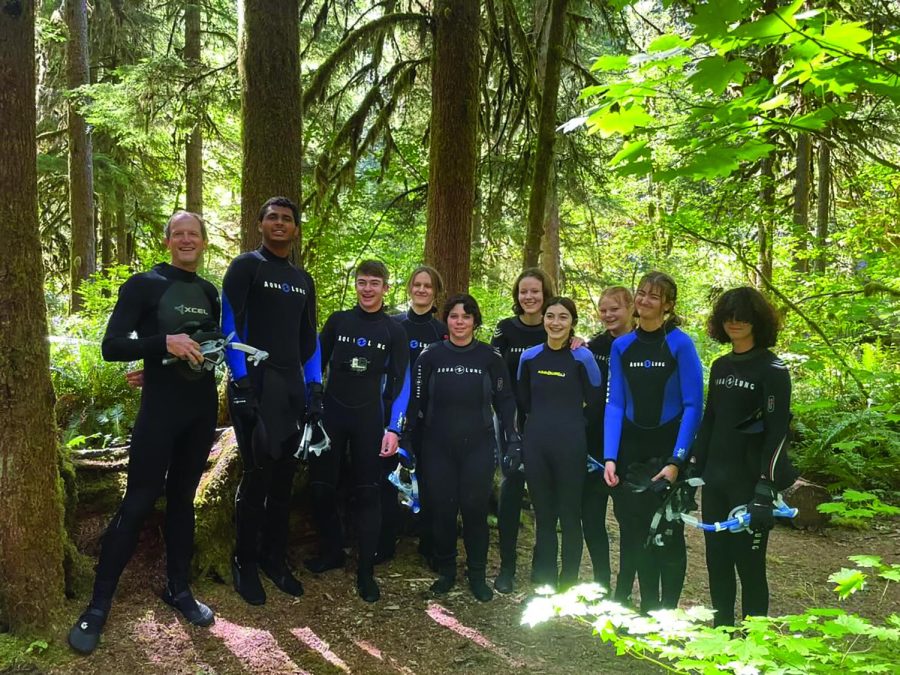Personal Safety
Oregon’s warm spring merits time outdoors doing our favorite activities in the sunny weather. However, this may pose concerns around personal safety. Science teacher Lucas Risinger shared some tips for keeping yourself safe while exploring. For hiking and backpacking while doing any of these activities, keep in mind where you’re going, and consider bringing a friend or two. Risinger recommends leaving ear obstructions at home. “I wouldn’t ever wear headphones and go hiking alone…Be aware of your surroundings.”
Camping is a favorite activity for many, but how can a person prioritize safety? Overpacking for a camping trip may seem like the right thing to do, but in actuality, packing just the essentials such as water, food, clothes, hygienic products, and first aid is the way to go. Risinger suggests the idea that “less is more.”
A part of outdoor camping comes with a campfire, but fire can be dangerous. When starting a campfire, make sure it’s an open space and you know the land’s local regulations. “Don’t use river rocks for a campfire; they have water pressure built up in them causing them to explode,” Risinger said.
Some may find themselves stressing about critters out on the trail, but it’s actually not as big of a problem as many think. According to Risinger, “Animal safety is not a big deal in Oregon at all…Just don’t leave your food out overnight because of raccoons.”
Lastly, a tip from Risinger about avoiding insect bites. “As far as insect bites go, try going the natural route. I don’t ever use bug spray but avoid scented deodorants and perfume… Campfires work [as well as] citronella candles,” Risinger said.
The science teacher also recommended a few safe outdoor activities to do this spring: “I love backpacking… I put all my camping gear in one backpack and hike about 10 miles in a day and then camp at night… I also like cliff diving, snorkeling, and I do a ton of fishing,” Risinger said.
Environmental safety
Even if an activity is safe for the human body, it may negatively impact the environment around it. Specifically, anything that involves trash or smoke can be harmful for nature.
Junior Hadley Huzefka of the environmental club makes a great point about balloons. “During water balloon fights, after the balloon pops, it leaves a part of the balloon behind,” she said. A good alternative could be using reusable or biodegradable water balloons instead.
If an activity must leave behind garbage, junior Noah Wines of the environmental club suggests, “Avoid bringing anything that will be excess trash, but take along an extra trash bag for garbage.”
Campfires may also pose a huge problem but are definitely a huge part of camping and keeping warm through the cold spring nights. Wines tells us what not to do while enjoying a campfire, “An enclosed campfire causes problems because it’s still active and not properly put out, or it has a ton of trash in it that will blow away in the wind.”
Junior Sarah Ward of the environmental club adds a note on recycling, “With campfires, people may burn their plastic water bottles and silverware after they’re used, which can cause more pollution. That’s why it’s really important to have recycling bins and trash cans that one can keep their garbage in.” Ward even advises to bring reusable water bottles, dishes, and bags camping when possible. Yes, outdoor activities in the warm spring are fun, but we should learn a few safety tips.



